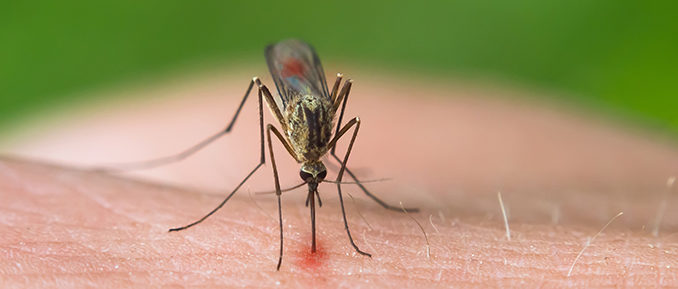
Malaria is a serious, sometimes fatal disease that is caused by a single-cell parasite and transferred to humans by the bite of a mosquito. Each year, millions of cases of the illness are reported, predominantly in young children and pregnant women from the sub-Saharan African region. Although deadly, malaria is preventable and treatable if tackled early enough.
However, one hindering issue persists – drug resistance. In recent years, it has become a significant hurdle in the global effort to eradicate malaria. The parasites that contribute to the disease have the uncanny ability to mutate frequently in order to survive and propagate. In the presence of an infection, the resistant mutations can evade the body’s immune system, as well as other biological attempts used to control the disease.
Of all the known human malaria parasites, P. falciparum is the most lethal strain. Unfortunately, it has developed a resistance to nearly all antimalarial compounds, including the current leading treatment of artemisinin-based combination therapy (ACTs). This factor, coupled with others such as low or insufficient drug levels, poses an immediate threat to any gains made to control malaria in areas where transmission is high.
Up until now, P. falciparum was believed to be withstanding the effects of antimalarials by directly altering the genome. However, a new study published in Antimicrobial Agents and Chemotherapy is finding that epigenetics may be assisting P. falciparum’s survival and allowing it to adapt at a much faster rate.
Epigenetics refers to chemical modifications made to DNA that alter gene expression but do not change the underlying DNA sequence. Many important biological processes involve epigenetic regulation, including those that occur during disease development. Well-characterized modifications such as DNA methylation and histone modifications can control how genes are expressed and can last throughout cell life and division.
Parasites possess a complex life cycle that includes various stages in both the disease-carrying vector and host. It is believed that parasite-specific genes involved in pathogenesis, host immune response, and cell cycle progression are regulated at the epigenetic level. Previously, we discussed the importance of epigenetics to the host/parasite relationship of another life-threatening disease, schistosomiasis. We’ve also reported on how infections, including those caused by parasites, can alter the human epigenome.
In this study, the research team led by Alfred Cortés of ISGlobal in Spain and Anna Rosanas-Urgell of the Institute of Tropical Medicine in Belgium investigated the underlying epigenetic mechanisms involved in P. falciparum’s antimalarial drug resistance. In particular, they looked at clag3.1 and clag3.2. These two genes control the activity of the Plasmodial Surface Anion Channel (PSAC) which mediates increased permeability to nutrients entering the infected red blood cells, most likely supporting intracellular parasite growth.
In a previous study, Cortés had found that changes clag3 gene expression caused alterations in the permeability of PSAC which in turn led the parasite to resist a toxic chemical compound. Here, the team considered whether clag3 was required by other malaria drugs to reach their intended targets.
Their results showed that certain antimalarial compounds like bis-thiazolium salts T3 and T16 required the clag3 genes to enter the infected cells. As well, the P. falciparum parasite populations proved to resist these compounds based on selection for reduced clag3.1 and clag3.2 expression. Other antimalarials such as doxycycline, azithromycin or lumefantrine, on the other hand, did not require the clag3 genes to be effective.
“These results show that P. falciparum can develop resistance to certain antimalarial compounds by epigenetic changes in the expression of clag3 genes,” the authors stated, “and are of relevance to drug development efforts since resistance by epigenetic mechanisms can arise quickly, even during the course of a single infection.” They also noted that because epigenetic changes are reversible, they provide the parasite with a great deal of plasticity.
Other factors may be responsible for promoting drug resistance in malaria parasites. Nevertheless, understanding how these organisms use epigenetics to evade immune response may elucidate the host-parasite interactions that lead to the disease. More research in this area could hopefully result in the development of better therapies that could one day eradicate malaria worldwide.
Source: Mira-Martínez, S. et al. (March 2019) Identification of antimalarial compounds that require CLAG3 for their uptake by P. falciparum-infected erythrocytes. Antimicrobial Agents and Chemotherapy.
Reference: Barcelona Institute for Health (ISGlobal) “A Quick Path to Antimalarial Resistance” March 2019.

